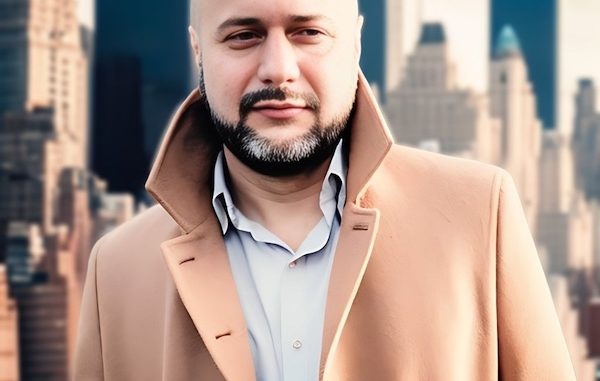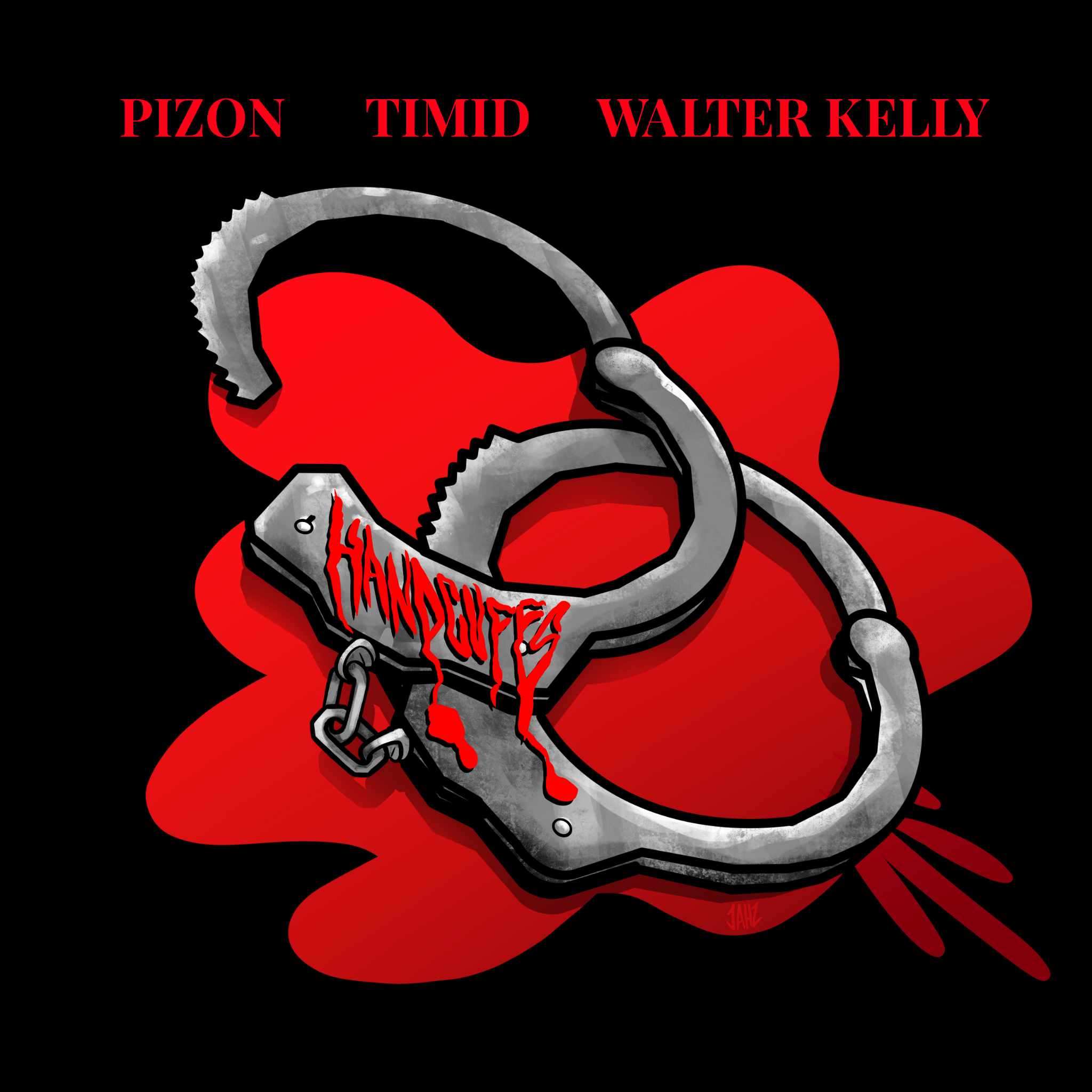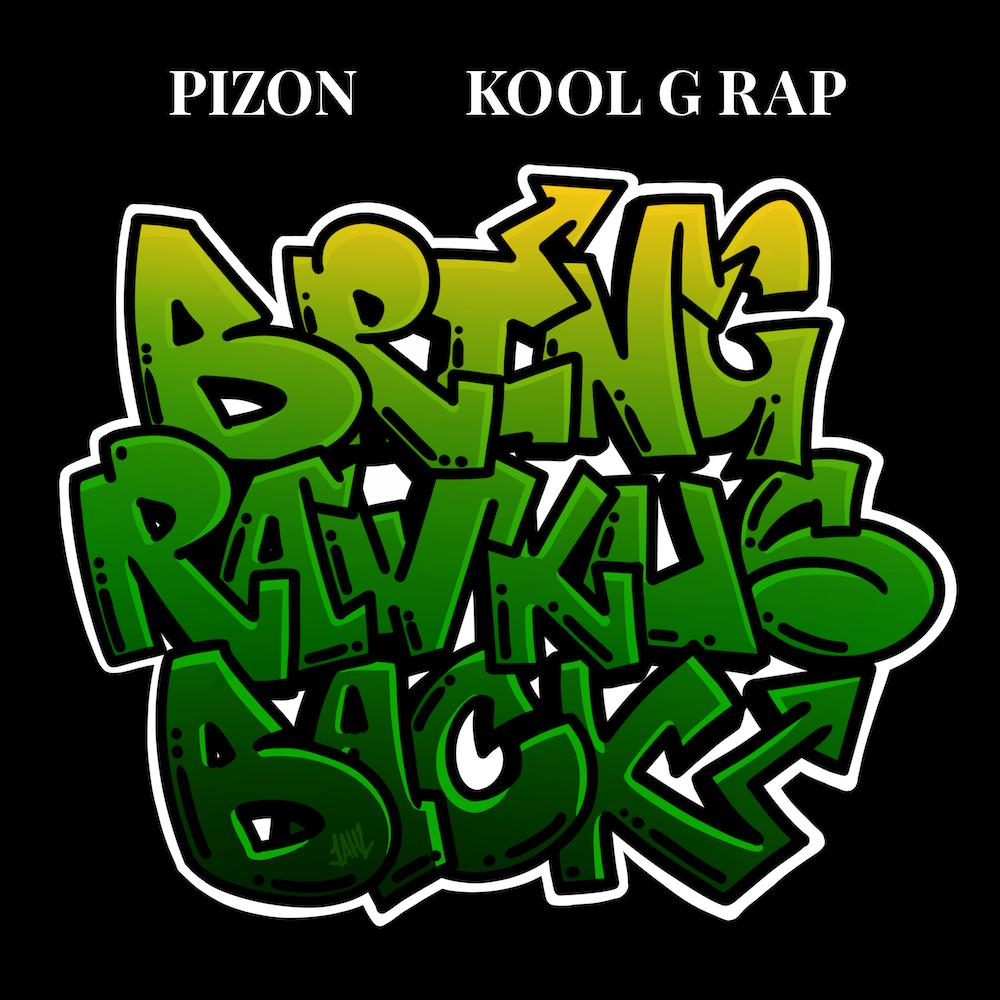
After more than a decade away from the mic, Pizon is back—and he’s not just picking up where he left off. This Queens emcee isn’t your average rapper. He’s an attorney, a politician, and a former artist on the legendary Rawkus Records. That’s right—Rawkus, the label that helped shape Hip Hop as we know it today. And now, with two new singles dropping back-to-back, Pizon is making his mark again in a big way.
His latest track “Handcuffs,” featuring Timid and Walter Kelly, dives headfirst into some of the most urgent conversations happening in America—police brutality, racial profiling, and the broken systems that keep it all in place. Before that, Pizon teamed up with the legendary Kool G Rap for “Bring Rawkus Back,” a tribute to the iconic label that nurtured underground Hip Hop and influenced an entire generation. These two singles are just a glimpse of what’s coming on his highly anticipated album Mic Scholar, where Pizon is blending his passion for music, activism, and politics into one powerful narrative.
But what’s truly wild is how seamlessly he’s managed to blend his roles—emcee, lawyer, and political figure—into one cohesive voice. While most artists focus on either the music or the message, Pizon does both, bringing a level of depth to his work that can only come from someone who’s lived through these battles on multiple fronts. In this interview, we get into what drove him back to the studio after 10 years, how his experiences in politics and law fuel his creative process, and why Hip Hop is still one of the most powerful platforms for change. This isn’t just a comeback—it’s a statement.

“Handcuffs” is a powerful track tackling police brutality and systemic racism. What inspired you to write from the perspective of a stereotypical antagonizing officer, and what message are you hoping listeners take away from that portrayal?
The song came about because I was freestyling and said “Watch how I shine, homie / With the nine on me.” It was really just me messing around initially because I wouldn’t normally rap like that. But I started to think about how I could make it work and came up with the character of a dirty cop. I thought it would be interesting to portray a crooked officer rapping like a gangster rapper. I’m big on taking creative approaches to songwriting. Hopefully listeners will recognize it as a critique of injustice.
How did the collaboration with Timid and Walter Kelly come together for “Handcuffs”? What unique elements do you think each artist brought to the song’s message?
After I recorded my verse, I sent it to Timid and he said it was one of my best. We had collaborated on music before where we each represented a different perspective, and I thought adding his voice to the mix would be impactful. While I’m playing a character, he’s tapping into his real life experience. That gives the song a more personal touch. Walter’s spoken word was the icing on the cake. I had seen him perform that at Georgetown and thought it fit the theme perfectly. He took a song that was about police misconduct specifically and connected it to institutional racism broadly.
You mentioned in the press release that “Handcuffs” was influenced by recent events like the killing of Sonya Massey. How do real-life incidents like these shape your approach to songwriting?
I draw from what’s going on around me, whether it’s in my personal life or society. The sad reality is we keep seeing stories of unarmed Black people killed by police. Chuck D once said you have a voice and might as well use it.
Your political background is incredibly unique for a Hip Hop artist. How do you balance your roles as a politician and an emcee, and how do these roles influence each other in your work?
People used to ask me how politics differed from music. I would say that politics is a lot like music, but music is a little more political. Fundamentally, I believe they are similar. They are both about moving the crowd, albeit in different forms. I definitely found it easier to give speeches with my stage experience. I remember thinking all I have to do is talk now, and it doesn’t even have to rhyme? The biggest challenge is finding time to do it all.
“Bring Rawkus Back” pays tribute to the legacy of Rawkus Records, where you were once an artist. Can you talk about what Rawkus meant to you personally and to Hip Hop as a whole?
To me personally, Rawkus was about credibility. With a million rappers trying to stand out, that stamp of approval almost served as an all-access pass to Hip Hop. Rawkus was that sweet spot that existed between the underground and mainstream. It showed you could have integrity as an emcee but still appeal to the masses. I think we could use more of that balance now.
The collaboration with Kool G Rap on “Bring Rawkus Back” is huge. What was it like working with such a legendary figure, and how do you feel his involvement enhanced the track?
When I was making “Bring Rawkus Back” I was thinking of possibly doing a remix featuring an original Rawkus artist. It just so happened that the opportunity arose to do it sooner because my man Domingo was producing Kool G Rap’s new album. It’s an honor having him on the song. How dope is it for one of the greatest of all time to tell you “Let’s bring it back to the essence” on a record? I told the story of Rawkus. He brought it to life by showing us Rawkus.

Your upcoming album Mic Scholar seems to fuse political commentary with your Hip Hop roots. Can you give us a glimpse of what we can expect from the album and how it reflects your evolution as both an artist and a political figure?
I’m doing political rap in a way I don’t think has ever been done before. I don’t just rap about political subjects, but I give you my experience in politics. I also have other songs in the vein of “Handcuffs” in that I’m tackling innovative concepts. I want to be known as one of the illest concept rappers. I tried to make an album where every song was different but there was still cohesion, where they sounded like they belonged on the same project. This is for you if you like rap songs more than rapping for the sake of rapping.
You’ve been involved in both the underground Hip Hop scene and mainstream political arenas. How does your experience in these different worlds influence your views on the current state of Hip Hop and politics in America?
I would like to see more substance in both. It seems we’re living in a fast food world and can really use a hearty meal. I’d like to see artists putting more time in their lyrics and candidates putting more thought in their plans. Growing up in the New York Hip Hop scene also gave me a certain edge. I believe many people are turned off by how sensitive things are today.
You’ve taken a long break from releasing music before Mic Scholar. What brought you back to the studio after 10 years, and how has your sound or message changed since your last release?
People may not realize that I haven’t stopped recording music. It’s a form of therapy for me. I actually recorded a whole album a few years ago and scrapped it because I thought I could do better. This album represents what I consider to be my best work to date. Part of it is taking some pressure off myself: I’m doing some really cool things outside music, so I no longer feel like every song I write has to cure cancer. At the same time, I never lost the hunger to release a great solo project. It was a matter of putting the reps in. I think my sound is more polished than ever, and more life experience gives me more to say.
With songs like “Handcuffs” and “Bring Rawkus Back”, you’re diving deep into societal and political issues. How important is it for you to use your platform as a Hip Hop artist to spark conversations about change, and do you feel Hip Hop is still a strong vehicle for social activism today?
Hip Hop was the civil rights movement of my generation. When I was in school, nothing did more to bring people of different backgrounds together than Hip Hop. I think we lost some of that. Hip Hop was always about partying too, and it doesn’t have to be serious all the time. I can hear my late father in my head telling me “Stick to what brought you to the dance,” which was clever punchlines. But I’ll say when I visited Rikers Island, people reacted more to my rapping than to my advice as an attorney. Music is a powerful tool, so I do think we have a responsibility to put it to good use.
Any last words?
If I can inspire one person to think outside the box, I’ve done my job. The songs are streaming on Spotify and the “Handcuffs” video is out on YouTube. For a more in-depth look at my music, I’m @rappinglawyer on TikTok.
“Bring Rawkus Back” and “Handcuffs” are both out and available on all major streaming platforms. Mic Scholar is due out later this fall.


Leave a Reply